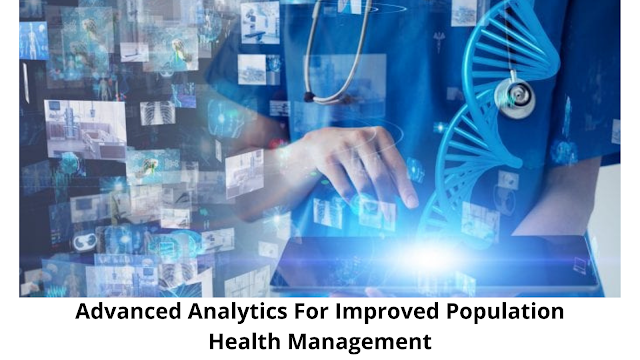The healthcare industry uses the PopulationHealth Management Platform for ensuring positive outcomes for patients while lowering the care cost. To successfully implement the Population Health Management (PHM) model for value-based care, the payers, including health insurance companies and the government, need large sets of data and the ability to evaluate it.
Healthcare analytics provide macro and micro
insights that aid decision-making at the patient and corporate levels. For
proactive care, healthcare informatics and analytics must work together to find
the latest healthcare trends, draw conclusions based on research findings and
determine the areas for improvement.
The advanced analysis of healthcare data assists
in evaluating existing procedures by using sophisticated data analysis tools,
such as predictive analytics and machine-learning algorithms. The advanced
analysis also plays a pivotal role in the identification of policy, procedure improvements,
and the establishment of outcome variables based on verified correlations.
Population Health Management Solutions
To discover insights, generate recommendations
and predictions, the Population Health Management Solutions combine
healthcare data with modern data analytics to offer payers and
providers an accurate assessment of the healthcare trends. The data gathering
and visual analytics deliver statistical inferences for high-quality care.
Advanced Analytics
The process of analyzing quantitative data to
report qualitative insights, answer questions, and detect trends is known as
data analytics. Several tools and systems are utilized to extract, store,
exchange, and analyze healthcare data including:
- Electronic
Health Records (EHRs)
- Personal
Health Records (PHRs)
- Electronic
Prescription Services (E-prescribing)
- Patient
Portals
- Master
Patient Indexes (MPI)
- Health-Related
Smart Phone Apps
Due to their complexity conventional data
processing technologies, data transfer, and storage solutions are ineffective
for these data sets. The centralized advanced analytic tools such as deep
learning, data mining, big data, pattern matching, forecasting, visualization,
multivariate statistics, neural networks, and cluster analysis profoundly
affect the research and application of Population Health Management.
Secured cloud computing is critical for
sensitive patient data. It's highly cost-effective and helps in bringing down
the rising cost of care.
Types of Healthcare Data Analytics
The healthcare data is also helpful in
predictive modeling to assist everyday operations for better care. The datasets
track trends, create forecasts and help take preventive steps and monitor
outcomes.
The four major types of healthcare data and,
analytics are as follows:
- Descriptive Analytics
Descriptive analytics evaluates and discovers
trends using statistical data by addressing inquiries and gaining insights
concerning the past.
- Diagnostic
Analytics
The diagnostic analytics explore the data and make correlations by understanding the cause and the patient’s symptoms.
- Predictive
Analytics
The predictive analysis examines historical
data, previous trends and makes appropriate predictions for the future.
- Prescriptive
Analytics
Prescriptive analytics evaluate a patient's
pre-existing diseases, predict the risk of future problems, and develop
preventative clinical guidelines.
Conclusion
The advanced analytics of a Population Health
Management Platform boosts efficiency across the board. Healthcare
organizations and caregivers get precise models for decreasing costs and
patient risk by using advanced analytics.




No comments:
Post a Comment
Please do not enter any spam link in the comment box